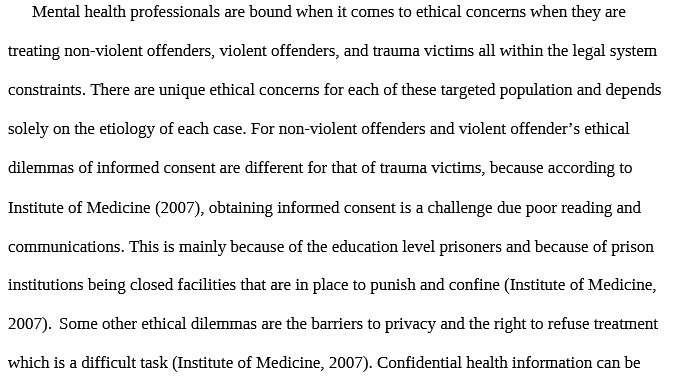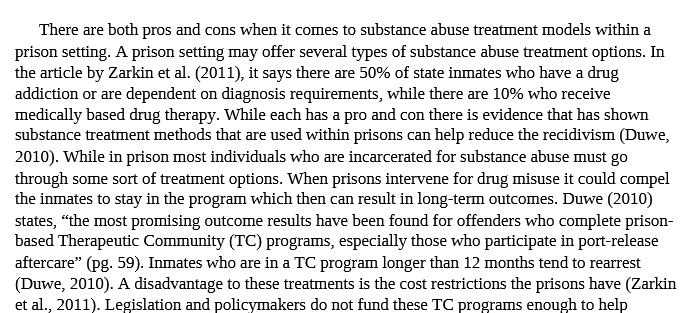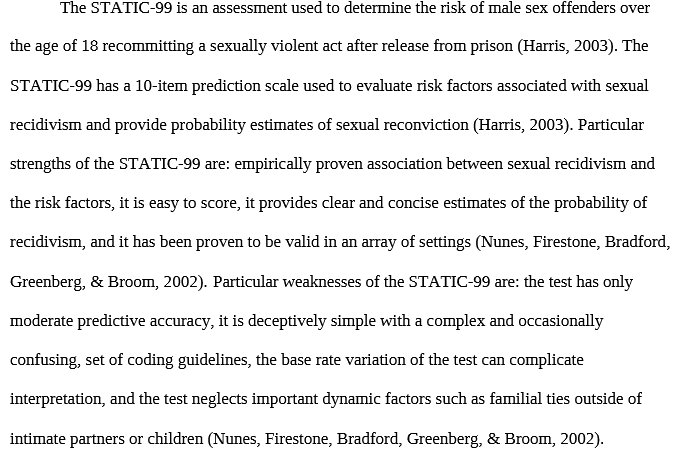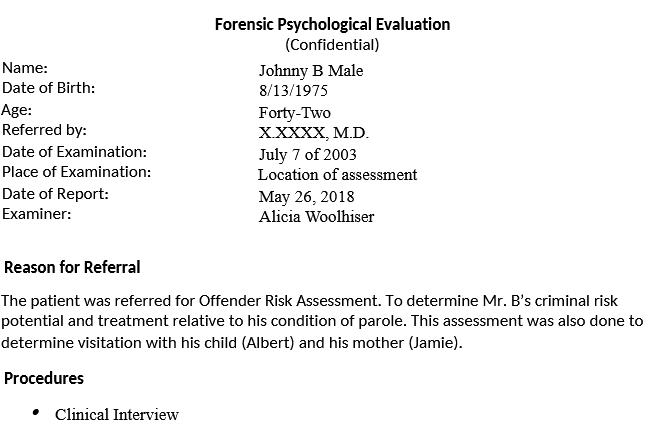Psy 624 Psy/624 Psy624 Milestone Two: LEGAL AND ETHICAL CONSIDERATIONS.docx- Snhu
$5.99
Psy 624 Psy/624 Psy624 Milestone Two: LEGAL AND ETHICAL CONSIDERATIONS.docx- Snhu
Ethical Concerns Mental health professionals are bound when it comes to ethical concerns when they are treating non-violent offenders, violent offenders, and trauma victims all within the legal system constraints. There are unique ethical concerns for each of these targeted population and depends solely on the etiology of each case. For non-violent offenders and violent offender’s ethical dilemmas of informed consent are different for that of trauma victims, because according to Institute of Medicine (2007), obtaining informed consent is a challenge due poor reading and communications. This is mainly because of the education level prisoners and because of prison institutions being closed facilities that are in place to punish and confine (Institute of Medicine,2007). Some other ethical dilemmas are the barriers to privacy and the right to refuse treatment which is a difficult task (Institute of Medicine, 2007). Confidential health information can be shared with the community for the sole purpose of avoiding danger and protecting the community (Institute of Medicine, 2007). For trauma victim’s ethical concerns are different because they are victims and not offenders there is access to them unlike offenders who are confined. Although there is access to trauma victims, there are still ethical concerns, according to Mailloux, S. L. (2014), when working through traumatic experience can result in emotional chaos for the victim and it is important to consider whether a victim can give consent to therapy
Description
Psy 624 Psy/624 Psy624 Milestone Two: LEGAL AND ETHICAL CONSIDERATIONS.docx- Snhu
Ethical Concerns Mental health professionals are bound when it comes to ethical concerns when they are treating non-violent offenders, violent offenders, and trauma victims all within the legal system constraints. There are unique ethical concerns for each of these targeted population and depends solely on the etiology of each case. For non-violent offenders and violent offender’s ethical dilemmas of informed consent are different for that of trauma victims, because according to Institute of Medicine (2007), obtaining informed consent is a challenge due poor reading and communications. This is mainly because of the education level prisoners and because of prison institutions being closed facilities that are in place to punish and confine (Institute of Medicine,2007). Some other ethical dilemmas are the barriers to privacy and the right to refuse treatment which is a difficult task (Institute of Medicine, 2007). Confidential health information can be shared with the community for the sole purpose of avoiding danger and protecting the community (Institute of Medicine, 2007).
Psy 624 Psy/624 Psy624 Milestone Two: LEGAL AND ETHICAL CONSIDERATIONS.docx- Snhu
For trauma victim’s ethical concerns are different because they are victims and not offenders there is access to them unlike offenders who are confined. Although there is access to trauma victims, there are still ethical concerns, according to Mailloux, S. L. (2014), when working through traumatic experience can result in emotional chaos for the victim and it is important to consider whether a victim can give consent to therapy.Also, another ethical consideration is the risk of re-dramatization which can occur when a mental health professional becomes complacent (Mailloux, 2014). An ethical principle that applies to all three populations is “Respect for People’s Rights and Dignity,” which according to Behnke, S. (2004), that psychologists respect the dignity and worth of all people, and the rights of individuals. On way to maintain the dignity and right of the individual is if mental health.
Psy 624 Psy/624 Psy624 Milestone Two: LEGAL AND ETHICAL CONSIDERATIONS.docx- Snhu
Psy 624 Psy/624 Psy624 Milestone Two: LEGAL AND ETHICAL CONSIDERATIONS.docx- Snhu
In their expert activities, therapists look
Psy 624 Psy/624 Psy624 Milestone Two: LEGAL AND ETHICAL CONSIDERATIONS.docx- Snhu
- PSY 211 – Lifespan Development (5015 Documents),
- PSY 215 – Abnormal Psychology (4335 Documents),
- PSY 108 – Introduction to Psychology (3759 Documents),
- PSY 223 – Statistics for Psychology Research (2652 Documents),
- PSY 216 – Psychology of Personality (1841 Documents),
- PSY 510 – Research Methods (1748 Documents),
- PSY 520 – Research Methods in Psychology II (1469 Documents),
- PSY 257 – Psychology (1451 Documents),
- PSY 310 – Criminal Psychology (1393 Documents),
- PSY 200 – FOUNDATIONS OF ADDICTIONS (1379 Documents),
Only logged in customers who have purchased this product may leave a review.







Reviews
There are no reviews yet.